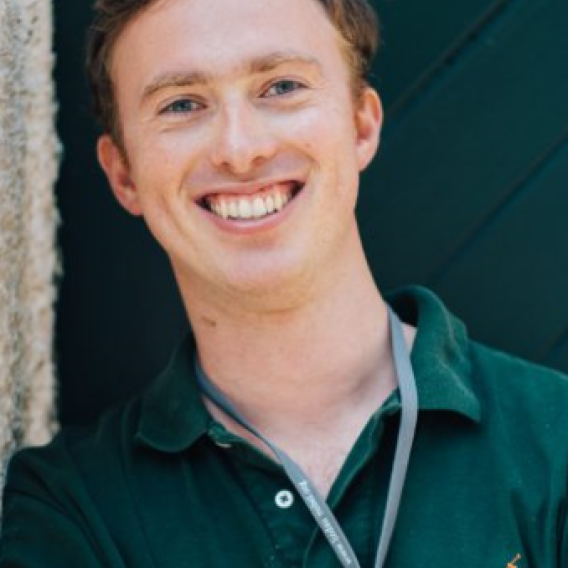Alumni Spotlight: Alessandro Del Ponte
“The combination of readings powerfully shaped my way of thinking,” Alessandro says. “If you read the classic thinkers in political economy carefully, you will find a gold mine of ideas that can fuel entire research programs in experimental economics.”


undefinedundefined Del Ponte’s research crosses disciplinary bounds. He earned degrees in economics (BSc, MSc), public administration (MPA), and political science (PhD) before stepping into his current position as a Research Fellow at the National University of Singapore’s interdisciplinary Global Asia Institute. There, he draws from experimental economics, psychology, and political science to understand how individuals and countries respond to economic and political hardship.
Alessandro received his PhD in Political Science from Stony Brook University in May 2019. He spent the 2017-2018 academic year as a Mercatus Adam Smith Fellow before joining the inaugural cohort of the Oskar Morgenstern Fellowship in the 2018-2019 academic year. The Morgenstern Fellowship exposes doctoral students who have training in quantitative methods and techniques to strategies for utilizing these methods and techniques in order to explore key ideas and themes advanced in mainline political economy. The Fellowship also provides the opportunity to connect their work to these ideas. “Oskar Morgenstern Fellows are uniquely trained to think about ideas deeply, crossing disciplinary boundaries and challenging conventional wisdom, and to do so using cutting-edge quantitative approaches,” Alessandro says. It was the perfect fit for his interdisciplinary interests.
Oskar Morgenstern Fellows are uniquely trained to think about ideas deeply, crossing disciplinary boundaries and challenging conventional wisdom, and to do so using cutting-edge quantitative approaches.
The Oskar Morgenstern Fellowship is designed to encourage the use of quantitative methods and techniques to explore key insights from mainline political economy. Fellows first read foundational works in political economy by thinkers such as F. A. Hayek, James Buchanan, and Elinor Ostrom, and then tie them to the empirical work of later scholars. “The combination of readings powerfully shaped my way of thinking,” Alessandro says. “If you read the classic thinkers in political economy carefully, you will find a gold mine of ideas that can fuel entire research programs in experimental economics.”
He names Adam Smith, Elinor and Vincent Ostrom, Vernon Smith, James Buchanan, and Gordon Tullock as especially influential for his own work. As a behavioral social scientist at the intersection of psychology, economics, and political science, he points to Adam Smith’s Theory of Moral Sentiments as foundational.

They were always ready to provide me with helpful feedback on my scholarly work, and the conversations with them sparked ideas that shape my research agenda.
 Alessandro also benefited from interacting with Mercatus scholars. “They were always ready to provide me with helpful feedback on my scholarly work, and the conversations with them sparked ideas that shape my research agenda,” he says. In fact, a research project grew out of those conversations. Alessandro plans to work with Virgil Henry Storr, the Don C. Lavoie Senior Fellow with the Hayek Program, on a project about spending and saving decisions in the face of natural disasters. That project will combine Alessandro’s interest in responses to difficult circumstances with the Hayek Program’s research project on Community & Crisis.
Alessandro also benefited from interacting with Mercatus scholars. “They were always ready to provide me with helpful feedback on my scholarly work, and the conversations with them sparked ideas that shape my research agenda,” he says. In fact, a research project grew out of those conversations. Alessandro plans to work with Virgil Henry Storr, the Don C. Lavoie Senior Fellow with the Hayek Program, on a project about spending and saving decisions in the face of natural disasters. That project will combine Alessandro’s interest in responses to difficult circumstances with the Hayek Program’s research project on Community & Crisis.
Alessandro uses multiple methods to answer his research questions, including incentivized and survey experiments and computational methods. One of the chapters in his dissertation analyzes results from interactive online games, which he developed in order to understand people’s spending habits in the face of shared financial risk and economic hardship. And, one of his current projects uses online games to investigate the relationship between income inequality and individual decisions about resource distribution.
“There are great opportunities to build an academic career on addressing the research program stimulated by classic thinkers in political economy with quantitative methods,” he says. “The social sciences increasingly need interdisciplinary scholars.”
Alessandro plans to continue pursuing the questions raised by mainline political economy using experimental and computational methodology. Although he acknowledges that an interdisciplinary research approach brings its own challenges, he sees it as an advantage, saying, “We have the opportunity to bring these ideas into the 21st century by using contemporary techniques to study deep and timeless questions.”